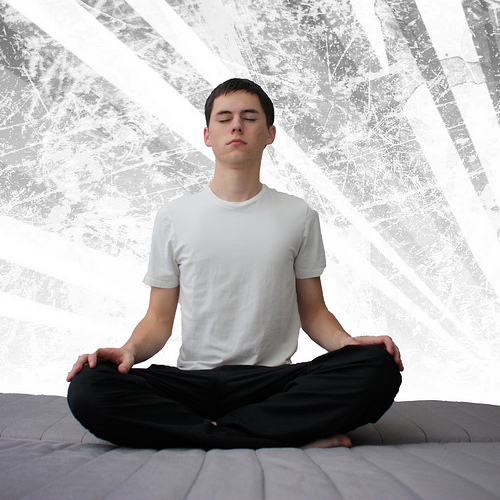The health benefits of mindfulness practice are now well established.
Consider this: Mindfulness practice can help cope with serious chronic pain, succeeding in making a normal life possible again for those otherwise debilitated by the pain itself, or the adverse effects of becoming addicted to pain medications.
Mindfulness practice, in combination with cognitive behavioral therapy, has been suggested to be one of the most effective forms of therapy for treatment resistant depression, helping where antidepressants or cognitive therapy alone don't.
Mindfulness practice, in combination with cognitive behavioral therapy, can also be effective in the treatment of anxiety and panic disorder. Mindfulness practice can possibly help with stress-related conditions such as high blood pressure, migraines, skin conditions such as psoriasis.
Mindfulness practice might help one cope with everyday stressors, thereby diminishing the need to rely on less healthy coping alternatives such as alcohol, drugs, eating too much or not enough, smoking, etc.
Not only can mindfulness practice act as potent medicine, but it is also free, and accessible to all. We should all be rushing to meditate. The fact that it is not so, begs the question of why not?

The broad answer is that mindfulness practice is not for everyone, just like the fact that not everybody exercises or follows a healthy diet, although both are key factors of good health.
Mindfulness practice requires discipline. Dragging oneself to sit day after day for 30 minutes every morning is not for the lazy one. Do you choose to sleep in some more, read the paper or do you practice instead?
Mindfulness practice requires faith in the process. Maybe you experienced immediate benefits from sitting at first? "I have never felt so peaceful," is a frequent response from first timers. But sooner or later, you are going to encounter parts of yourself that don't feel so good, and you may start doubting. What's the point?
Mindfulness practice might be hard for type-A personalities who expect results, fast. One of the paradoxes of mindfulness is that it does require some intention, and at the same time it does not work well with the extra tension from a priori expectations. You are to sit with yourself without judgment about how things should go.
Mindfulness practice might require one to have a relatively high tolerance for pain. The practice is largely about learning how to be with one's suffering, turning towards it as opposed to away from it as we usually do. If you are the type to pop in pills for the slightest headache, you may have a hard time sitting with your pain.
Now you can decide.